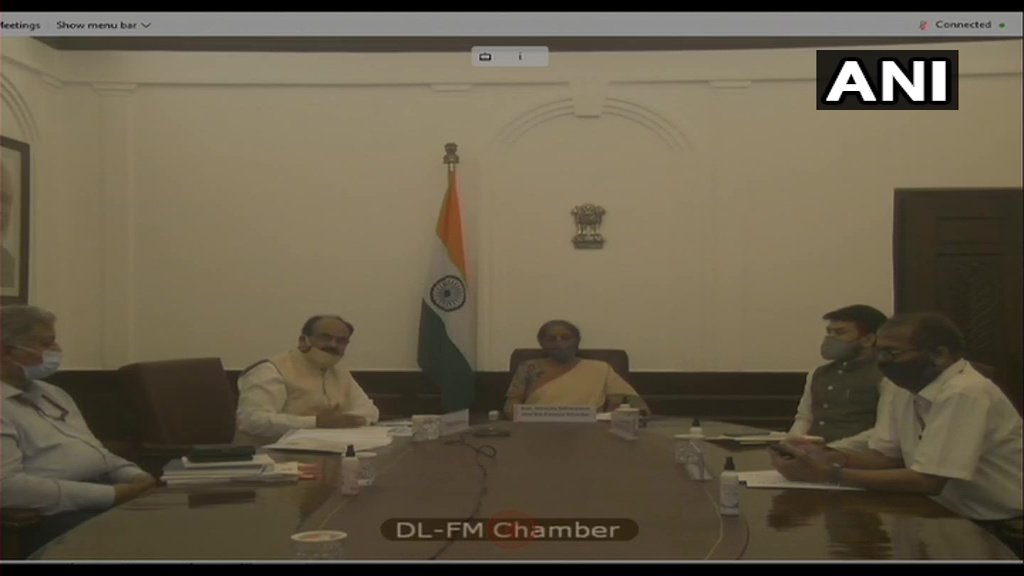New Delhi : With Covid-19 disruptions making it impossible for the Centre to meet its obligation to provide compensation under the Goods and Services Tax (GST) law to states this year, it has proposed two options to the states to cover their compensation gap and meet their expenditure requirements.
States have been given seven days time to come with their views on the options listed by the Centre, during the 41st GST Council meeting on Thursday, so that a mechanism could be put in place as an exception this year to meet the fund needs of the states.
The first option given by the Centre is to provide a special borrowing window to states, in consultation with the RBI, to provide Rs 97,000 crore at a “reasonable” interest rate. The money can then be repaid after 5 years from collection of cess.
Finance Minister Nirmala Sitharaman said that the Centre will give a further relaxation of 0.5 per cent in states’ borrowing limit under the FRBM Act as the second leg of the first option. This will allow states to borrow more unconditionally to cover their compensation shortfall.
States can choose to borrow more, beyond the expected compensation itself, since that is the injury caused by pandemic.
The second option is to meet the entire GST compensation gap this year itself through borrowings after consulting the RBI.
As per Finance Ministry estimates, the GST compensation gap in FY21 is expected to be staggering Rs 2.35 lakh crore. This is as the Centre expects to collect mere Rs 65,000 crore from GST cess due to Covid-impacted, subdued economic activity.
Sitharaman informed that state Finance Secretaries have been asked to send suggestions in a note and had sought time of seven days. This arrangement, if it is implemented, will be for the current year and the council will again look at the situation in April 2021, the Finance Minister said.
Finance Secretary Ajay Bhushan Pandey said that the current year has seen a slowing down of the economy due to Covid-19 which has led to low GST collections. He informed that due to unprecedented situation presented by Covid, the compensation cess requirement of states for the two bi-monthly period of April-May and June-July has shot up to Rs 1.5 lakh crore.
Centre compensates states for revenue loss on account of GST collection shortfall every two months under the GST law. But since the second half of last year, compensation payment to states have been delayed, resulting to sharp reactions from states, particularly those run by opposition governments.
Pandey noted that the Attorney General is of the view that compensation needs to be paid to states for five years, but this compensation gap has to be met from the levy of cess. Compensation cannot be paid from Consolidated Fund of India, he added, indicating that cess may be continued beyond June 2022 so that states’ share is completely paid off.

